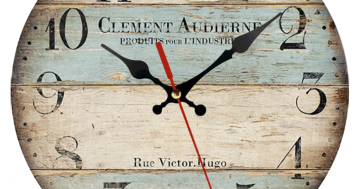 1. This week 10 years ago, Minister for the Status of Women, Julie Collins introduced into Parliament new laws improving gender equality in Australian workplaces.
1. This week 10 years ago, Minister for the Status of Women, Julie Collins introduced into Parliament new laws improving gender equality in Australian workplaces.
Ms Collins said the legislation would improve gender equality outcomes and simplify reporting for businesses.
“This is an important reform aimed at the genuine and sustained removal of barriers to women’s full and equal participation in the workforce,” Ms Collins said.
“Improving women’s workforce participation is fundamental to closing the gender gap in the workplace and an absolute must if we are to boost Australia’s productive capacity.”
2. Minister for Regional Australia, Simon Crean launched the Regional Australia Institute, which he said would help regions to recognise their strengths and diversify their economic base through rigorous scientific research and debate.
Mr Crean said the Government had allocated $8 million in seed funding to create an interconnected, independent body devoted to tackling regional issues.
“Under the leadership of inaugural Chair Mal Peters, it will become a trusted source of independent information and advice for communities, industries and Governments and bridge the gap between academia and policy,” Mr Crean said.
3. A new requirement was introduced to make seatbelt reminder systems compulsory for the driver’s seat of all new passenger cars, passenger vans and sports utility vehicles.
Parliamentary Secretary for Infrastructure and Transport, Catherine King said the introduction of the technology into new vehicles would help combat seatbelt wearing noncompliance and reduce fatalities and serious injuries among vehicle occupants.
Ms King said the new requirement would mandate both visual and audible reminders that operated for at least 30 seconds, to make sure drivers put on their seatbelt.
“Almost one in three Australians fatally injured in vehicles are not wearing a seatbelt,” Ms King said.
4. The Victorian and NSW Governments expressed disappointment at the Commonwealth’s decision to reinstate water buybacks in the southern Murray–Darling Basin.
Victorian Minister for Agriculture and Food, Peter Walsh said he and the NSW Minister for Primary Industries, Katrina Hodgkinson both felt the decision was misguided, misinformed and a clear breach of previous commitments.
“Victoria has been calling for more investment in environmental works and measures,” Mr Walsh said.
“Like irrigators, the Commonwealth water holder needs to use its water entitlements efficiently.”
5. Also a decade ago, researchers from the University of South Australia warned Adelaide’s climate would become hotter and drier and more like Whyalla’s within 50 years. Lead Researcher, Associate Professor Jon Kellett said the researchers looked at how Adelaide could learn from experiences in both Whyalla and Port Pirie — two cities already experiencing the climate predicted for Adelaide.
He said people should recognise certain things were going to change and adjust their behaviour. He said insulating homes and waterproofing gardens were sensible precautions to take now.
6. WA Attorney-General, Christian Porter said new laws had reduced the number of people using excuses to avoid jury duty by 43 per cent, making WA juries “more representative than they have ever been”.
Mr Porter said before the reforms, almost three-quarters of people called up for jury duty were excused, whereas now only about one-third were exempted.
Mr Porter said the number of people who did not attend because they did not respond at all to the summons had fallen from 1,792 to 762.









